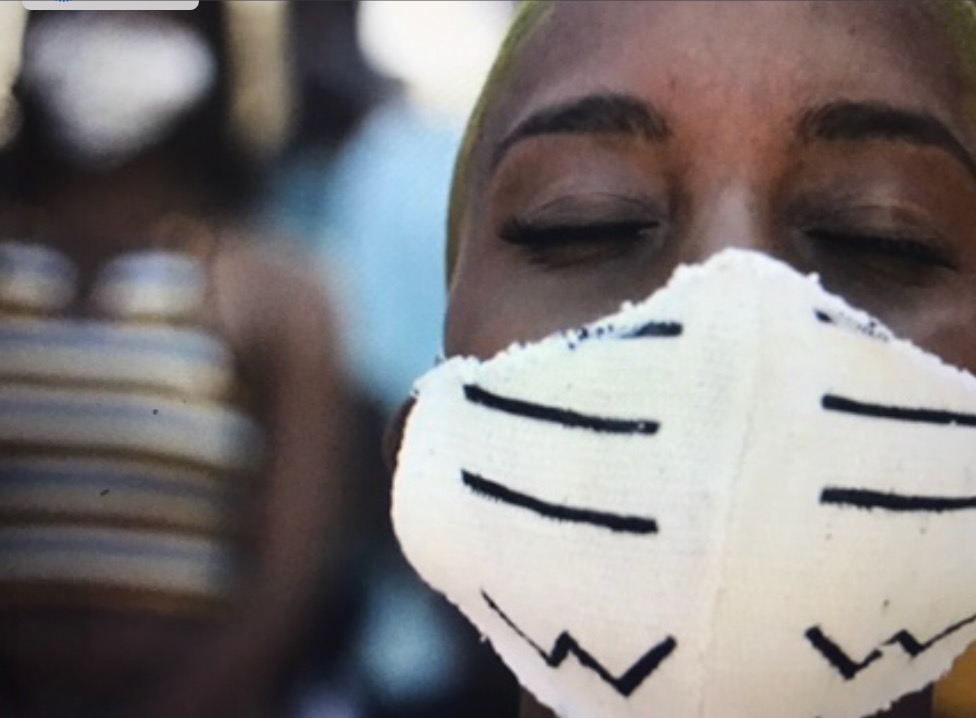Featured
5 Takeaways From the Black Women’s Roundtable Annual Report

The Black Women’s Roundtable started surveying and assessing the state of Black women in an annual report nine years ago. Its most recent summary was released Thursday and included feedback from African American women on issues ranging from politics to the pandemic. Melanie Campbell, Convener of the BWR, said the reports “gets better and better every year.”
Elsie Scott, President of Howard University’s Ron W. Walters Leadership and Public Policy Center, presented the findings along with Avis Jones-DeWeever, a nationally known speaker on race, gender and the economy. They shared the information compiled by the report’s authors and editorial team during a virtual conversation.
Politics
The report indicates that Black women are “very much concerned about the gerrymandering that’s taking place and the redistricting.”
Scott stated, “We cannot let that get us discouraged and decide that we are not going to continue to be engaged in the election process.” She outlined the reports recommendations: staying on message by continuing to represent the interests of Black women and the issues they are most concerned about because “they felt like it’s going to be more challenging because they have taken away some of the early voting and some of the opportunities to vote.”
She mentioned, “There is concern that we have the most diverse Congress we have ever had and we have more Black women there as well as Black men … but there is a concern that we didn’t get as much done in this legislature. They want to look at how we increase the numbers of, ‘How do we get the people there to look at the issues so we can have more wins in that area.’”
Economics
Jones-DeWeever explained, “We know that Black women faced a disproportionate impact as it relates to unemployment over the period of the first two years of the pandemic … It’s really kinda interesting when you think about the fact that we continue to lead all women as it relates to labor force participation, so the pandemic did not change that dynamic.” She advocated for more “wraparound” services for Black women, providing more access to health care, addressing the double wage gap and creating access to better control of work schedules.
She said, “We tend to be lumped in jobs that are not only low wage jobs but are also jobs that allow us little freedom with regards to being able to take care of our families and ourselves when we need it.”
“The challenges that we faced historically and continue to face, I’m happy to say is not anything that is stopping Black women from achieving from working for more, from ascending, from doing all those thing we have to do in order to not only make a way for ourselves, but our families and our communities,” she added.
Education
Historically Black Colleges and Universities are experiencing a record level of funding from the government and the private sector which bodes well for students who graduate from HBCUS.
But Jones-DeWeever anticipates problems for African American children and teenagers in schools because of the inflammatory discourse about Critical Race Theory. And Black women are concerned about the shape education will take in the aftermath of the debate.
“There is a strong piece around this whole war against Critical Race Theory,” emphasized Jones-DeWeever. “I think that’s an important examination because that impacts our children’s ability to see themselves in school, to be able to read literature that impacts their lives and reflects their experiences and has our history accurately recounted, and that prioritizes the feeling of our children and the lived experiences of our children just as much as what is being prioritized now in a lot of these laws that are going around the nation attacking Critical Race Theory.
She said the report found that 38 states have pursued laws condemning CRT which she suggested is a “political ploy” to attack truth telling.
“What we’re calling for is a counter to that so that our school boards are not overrun by individuals who seek to strip away a full telling of who we are,” Jones-DeWeever stated.
Health Care
The subject of health care among Black women included attention to the significance of the COVID-19 pandemic with a keen awareness of the need for more diversity in clinical trials.
According to Jones-DeWeever, “We know that, generally speaking, Black people writ large, for example, are underrepresented when it comes to clinical trials. That’s one of the reasons why oftentimes when drugs are approved, we really don’t have a lot of data on how it impacts the Black community … they want to make sure that we have more representation both in those trials but also that that information is disseminated in the Black community to help people feel more comfortable taking advantage of possibly lifesaving drugs like, for example, the COVID-19 vaccine and making sure that people are taking advantage of all that is out there for them in regards to those health needs.”
Criminal Justice
The nomination of Judge Ketanji Brown Jackson has been a cause for celebration among African American women said Elsie Scott. She shared, “One of the things Black women are most happy about is that President Biden fulfilled his campaign promise to appoint a Black woman to the Supreme Court.”
But there are also disappointments.
“There was a great expectation that the George Floyd Policing Act was going to pass. It passed in the House but got stalled in the Senate and that was interesting because there had been a lot of bi-partisanship around criminal justice issues, but it did not pass. Our authors are saying we cannot be discouraged around the failure to see much change in the criminal justice system.”

-

 Featured10 months ago
Featured10 months agoCalifornia Is the First State to Create A Public Alert for Missing Black Youth
-

 Featured10 months ago
Featured10 months agoAfrican American Leaders Stay the Course Amid Calls for President Biden To Bow Out of Race
-

 Featured10 months ago
Featured10 months agoThe Debate Fallout Lands on Both Candidates
-

 Featured9 months ago
Featured9 months agoPresident Joe Biden Decides to Withdraw from the Presidential Race
-

 Featured9 months ago
Featured9 months agoIn One of His Final Speeches as President, Biden Says It’s Time for ‘Fresh Voices’
-

 Featured10 months ago
Featured10 months agoPresident Joe Biden Describes Shooting of Donald Trump As ‘Sick’









